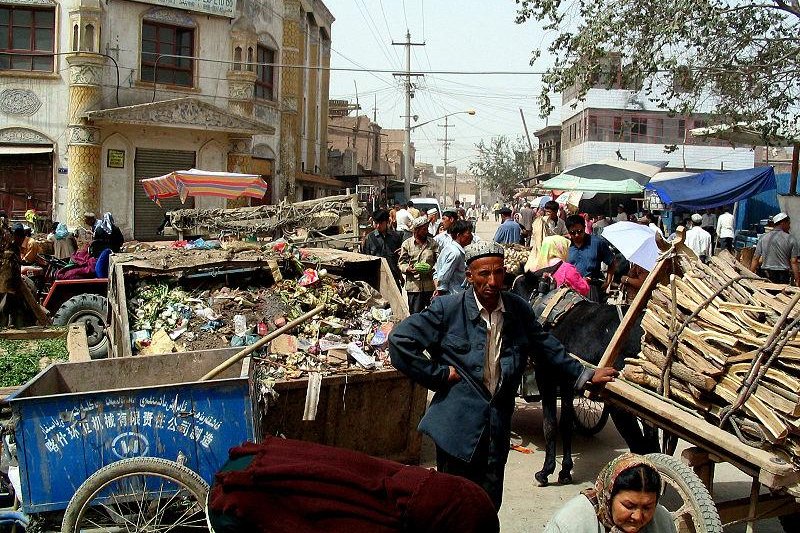A photograph captures the street scene in Kashgar, a city in the western Chinese region of Xinjiang. (CC/Ben Paarmann)
KASHGAR, China, Oct. 13 (UPI) -- A court in China handed down death sentences to 12 people on Monday for their roles in a violent clash between local residents and police in the region of Xinjiang this summer.
A court in Kashgar -- the westernmost city in China and important stopover along the ancient Silk Road that first connected Asia to the Middle East -- called the 12 defendants "terrorists" and accused them of participating in a mob that attacked government officials and local police in Shanche County with knives, axes and machetes, reportedly killing 37 people. In the turmoil that followed, police shot and killed 59 people.
China's state news agency, Xinhua, reports that in addition to the 12 immediate death sentences, 15 more death sentences handed down but postponed for two years, while nine were sentenced to life in prison and 20 given four to 20 years in jail.
Though such information was unspecified by Chinese court documents, both last names and the context of recent events suggest the so-called "terrorists," as well as the locals killed by police, are Uighurs -- a Turkic Muslim minority group of which there are more than 10 million in western China. The relationship between Uighur communities and the Chinese government is consistently dicy, with both locals and human rights groups accusing the Chinese of religious persecution.
Uighur advocacy groups abroad were quick to cast doubt on China's official version of events, with some exile groups claiming the 59 killed locals were not mobsters but peaceful protestors voicing their displeasure with new laws limiting certain religious practices.
Both The New York Times and Al Jazeera shared the Chinese government's account of the violence, while acknowledging that the story -- as court documents and government officials tell it -- was nearly impossible to verify. "The government limits reporting in the region, making it difficult to independently verify the details about such incidents," Times reporter Andrew Jacobs wrote.
The summer's violent clash is only the latest in a string of several conflicts in Xinjiang -- nothing new. In the last year, at least 400 people have died in the remote desert region near China's border with Tajikistan and Kyrgyzstan. China says the deaths are the result of its ongoing fight with Islamic insurgents; others say the casualties are the result of excessive force by state security forces.















